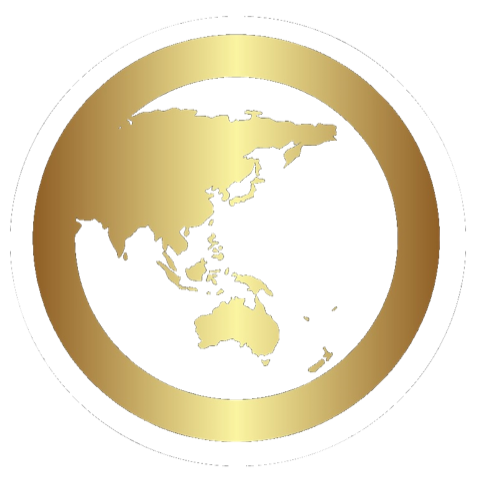Is it possible, that something non-material is in fact of the most value? Well, it is far too often, intangibles, such as rights or entitlements, are either not considered, because they can’t be seen or touched or underestimated. What comes to mind is the insurance cover. One often only realises its value in times of emergency and crisis.
Intellectual Property (IP), is the property of the mind or proprietary knowledge. Basically, it is the productive new ideas created. Intellectual Property comprises inventions in the form of patents, badges of origin in the form of trade marks, the overall appearance of industrial products, covered by registered designs, plant breeders rights, circuit layouts on microchips, or simply trade secrets.
IP is a remarkable asset, as it protects from attacks of business competitors, enables one to actively preventing any third party from exploiting one’s idea commercially, and creates an ongoing revenue stream from license fees, payable in exchange for the consent to commercialise an idea.
It is suggested from time to time that ideas should not be monopolised and no one should be able to monopolise words, slogans, logos, inventions the like. But would this really lead to growth or at least sustainable progress for all to enjoy? Surely, it sounds like a great idea, if we all share ideas freely. But then again, humans are competitive by nature competition has always been the driver of innovation.
On the contrary socialist society ideas or even the idea of communism, based on deliberate equal sharing of wealth had not been far too successful in recent times.
But let’s put it to the test and think of a society, where Intellectual Property rights do not exist and where in fact every innovation created immediately forms public domain. Wouldn’t it be nice, if we can all just use other people’s ideas and use them for ourselves and our own good and that of our family? The answer is evident the moment one is putting oneself in the creator’s shoes. Without monopoly rights, able to be owned by a creator, there is little reward and thus incentive to the creator. In other words: Without trade marks, copyright, design rights, or patents, there is no monetary motivation to create new things. The desire to strive is killed, causing innovation to slow to pause.
Where no innovation is possible, because no one feels the desire to innovate for the lack of an incentive, it is hard to imagine, that operating systems of computers would continue to exist, pharmaceuticals, all based on years of research and development, that is to be funded, as the researchers and developers need to make a living, would disappear, because all investment needed to produce a vaccine or drug would be ultimately lost and could not be recuperated.
A world without science and technology
Apart from not having any effective medication to fight the world’s most dangerous diseases, such as the current COVID-19 disease, similarly, technological innovation in the most advanced fields would stagnate due to a lack of monetary incentive in a world that lacked the protections afforded by copyrights, patents and trade marks.
Where there is no research and development, there are no progress and no advances in science and technology, as the developers lose, when the market is flooded with cheap copies. Product quality would be gone immediately, as companies would from then on focus on mass production to somehow achieve a profit.
Art and literature would barely exist in this world
All of a sudden, any art and literature would disappear as soon as copyright would be non-existent. Without a way to monetise creative work or even art to create an income for themselves, many artists would turn their backs on building, drawing, painting, and composing and would rather be looking for a day job and bring bread to the table.
After all, the ability to make a living fully depends on the ability to create an income from one’s work. With no IP even existing, books, paintings, music, and any other form of art would also slowly vanish. And even though a few artists and authors would be all too enthusiastic and would continue to craft, build, create, compose, and text, publishers would all go bankrupt and with them disappearing, the income stream of all these remaining creative enthusiasts would be gone as well.
Business, in general, would come to a standstill
Copyrights, patents, and trade marks provide businesses, regardless of size, with tools to fight infringement by competing businesses. Without IP existing, the already ultra-competitive business world would become even more ruthless. Businesses would have to move incredibly fast to leverage the advantage gained by inventing or innovating something new. If you don’t capitalize on your edge fast enough, competition can and will simply copy and overtake you, by saving on investments in innovation.
When all commodities and natural resources are gone we would have to flee the planet but would not have created a spaceship that could take us to a new world.
So, although patents, copyrights, and other key aspects of IP law may seem abstract and even unnecessary to those who don’t fully understand their purpose, they inevitable elements of our society. The guarantee of certain monopolies through the protection of IP rights enables a healthy market competition that is the driver for creative, scientific, and business innovations while protecting those who innovate. It follows naturally that Intellectual Property must remain existent. This is well illustrated by the now famous quote by Mark Getty, the chairman of Getty Images: “Intellectual Property is the oil of the 21st century.”
Let’s make sure, we innovate enough to be able to find a new place to live when this Earth comes to an end.
If you would like to find out more about your company’s intangible assets or require a valuation of an existing Intellectual Property Portfolio, contact us:
PHONE: (02) 8277 4114
EMAIL: office@one-ip.com.au

